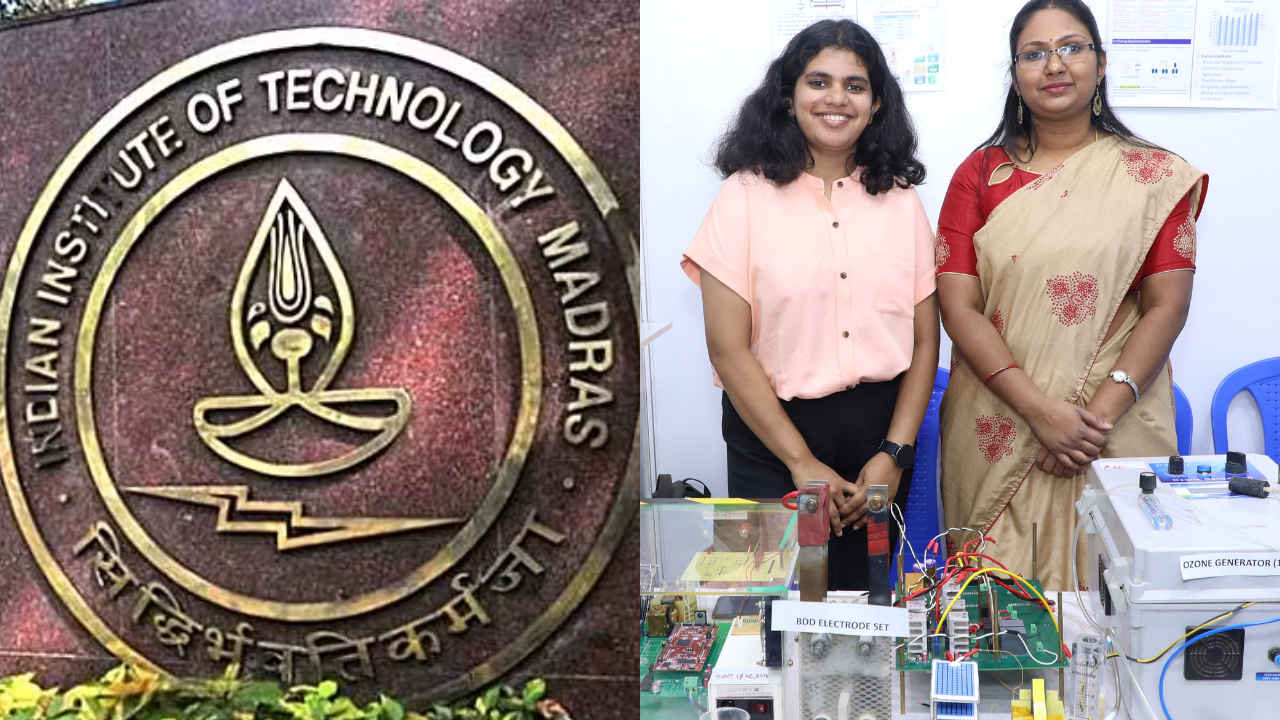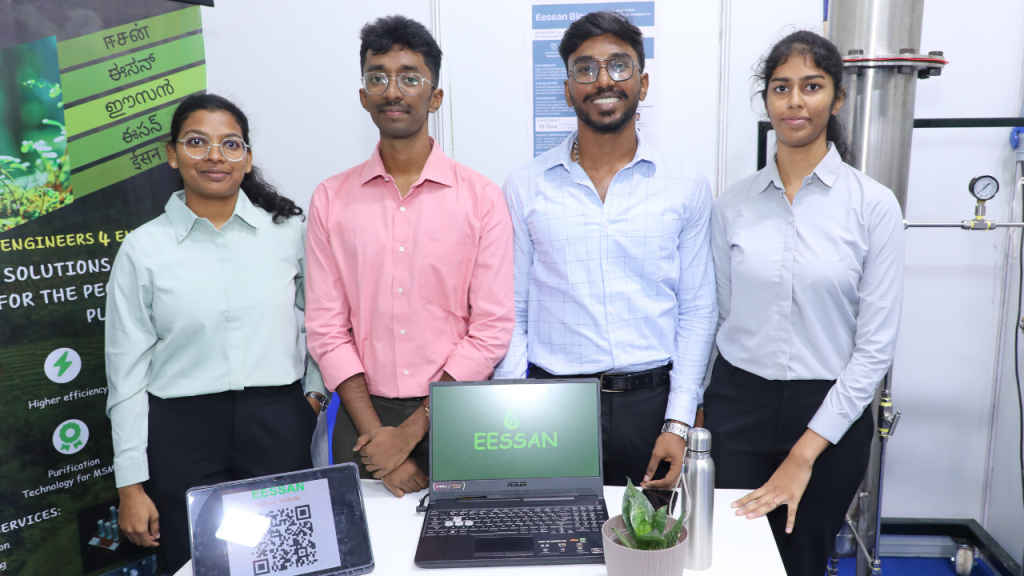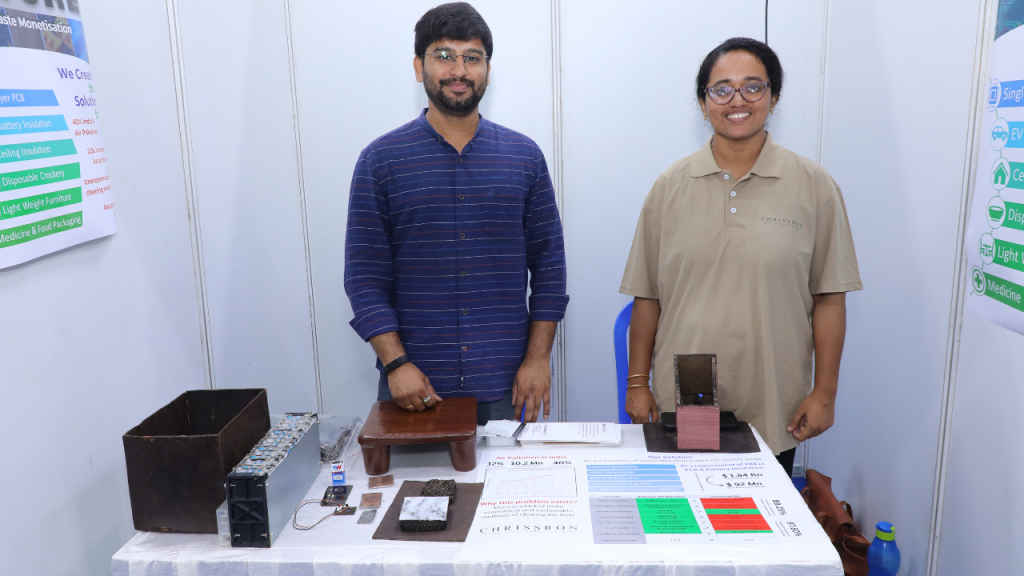IIT Madras Carbon Zero Challenge: Top 6 teams and their tech innovations

The Indian Institute of Technology Madras (IIT Madras) has announced the top six teams from the fourth cohort of the Carbon Zero Challenge (CZC 4.0), a nationwide initiative aimed at fostering eco-friendly technological innovations.
 Survey
SurveyThe Carbon Zero Challenge, initiated by IIT Madras, aims to accelerate the development of sustainable technologies addressing critical environmental issues. Since its inception, the challenge has supported approximately 100 prototypes, fostering innovation in sectors such as energy, materials, agriculture, air, and water. These teams will each receive seed funding of up to ₹10 lakh to further develop their prototypes. Additionally, one team received a special mention for its notable achievements.
Also read: From IIT to Infosys: India’s AI revolution gains momentum, as 7 new members join AI Alliance
Gudlyf Mobility Pvt Ltd – H2ARWASTE: This team is developing hydrogen storage cylinders utilizing agricultural waste. By converting biomass into hydrogen storage solutions, they aim to provide a sustainable alternative to conventional materials, potentially reducing reliance on non-renewable resources.

EESAN – CBG for Sustainability: Focused on producing cleaner bio-methane for domestic and small business use, EESAN’s technology could offer a renewable energy source, contributing to reduced greenhouse gas emissions and promoting energy self-sufficiency.
Electropulse Innovations – Wastewater Treatment: Employing high-voltage pulse generators, this team’s approach to wastewater management seeks to enhance treatment efficiency, which is crucial for addressing water scarcity and pollution challenges in India.
Also read: Meet the IIT-Bombay graduate who worked on camera control feature for Apple’s iPhone 16 series
Thaal Chemy Innovations Pvt Ltd – Sustainable Packaging: By producing nano-cellulose from agricultural residues, Thaal Chemy aims to create eco-friendly packaging materials. This innovation could help reduce plastic waste and promote the use of biodegradable alternatives.
ReWinT – End-of-Life Turbine Blades: ReWinT is developing methods to recycle wind turbine blades using eco-friendly chemical and thermal processes. This initiative addresses the growing concern of waste from decommissioned turbines, contributing to a circular economy in the renewable energy sector.

Chrissron Biomass Solutions – Plant-Based Resin: This team is manufacturing sustainable resin derived from plant waste, offering an alternative to petroleum-based resins. Their innovation has the potential to reduce the environmental impact of resin production and promote the use of renewable materials.
YoTuh Energy: Receiving special mention and recognised for their electrified refrigeration technology for cold logistics vehicles, YoTuh Energy’s solution addresses the need for efficient and sustainable refrigeration in India’s supply chain, which is vital for reducing food spoilage and energy consumption.
Thales, a global leader in advanced technologies, has been actively supporting eco-innovation initiatives in India. As part of its Corporate Social Responsibility (CSR) efforts, Thales collaborated with IIT Madras for the second consecutive year to support the Carbon Zero Challenge (CZC) 4.0, aligning with its commitment to building a safer, greener, and more inclusive world.
Also read: IIT Bombay loses over 7 lakh to digital arrest scam: Here’s what happened
Expressing the company’s dedication to sustainable development, Ashish Saraf, Vice President and Country Director for India at Thales, stated, “Thales is proud to have supported IIT Madras’ Carbon Zero Challenge, an initiative that not only stimulates transformative eco-innovation but also resonates closely with our vision of advancing sustainable solutions for the future. Our collaboration on CZC with IIT Madras has been to empower young innovators across India to address critical environmental challenges and pave the way for development of impactful, resource-efficient technologies, in line with our long-term commitment towards nurturing a cleaner, greener world. We congratulate all the participants and look forward to the continued progress of these exceptional teams in shaping a sustainable tomorrow.”
Prof. Indumathi Nambi, Coordinator of the Carbon Zero Challenge at IIT Madras, highlighted the program’s impact, stating that CZC 4.0 attracted over 2,000 participants from 775 universities and 430 startups across India. She noted that 30 startups have emerged from previous cohorts, with another 35 advancing toward commercialization. Participating teams received up to ₹5 lakh in funding and mentorship to develop their prototypes.
The success of CZC 4.0 underscores IIT Madras’s commitment to nurturing startups that address pressing environmental challenges through sustainable technology, contributing to India’s efforts in combating climate change and promoting a greener economy.
Also read: IIT-AIIMS developing AI applications to improve India’s healthcare: Here’s how
Team Digit
Team Digit is made up of some of the most experienced and geekiest technology editors in India! View Full Profile